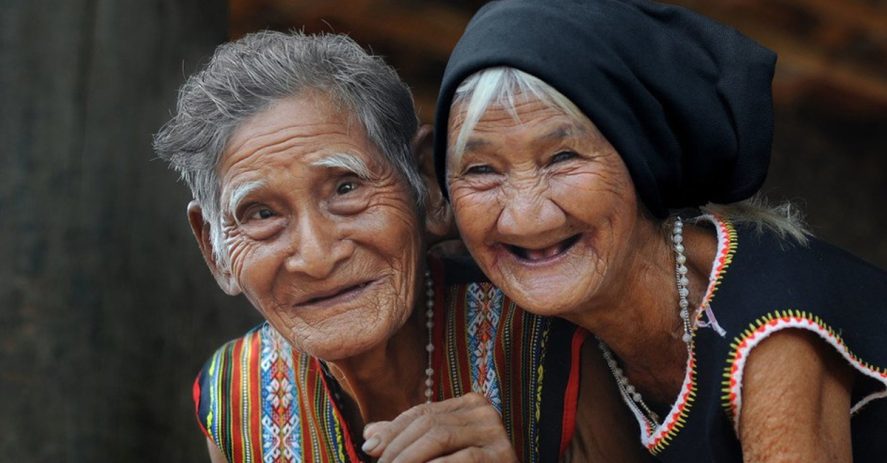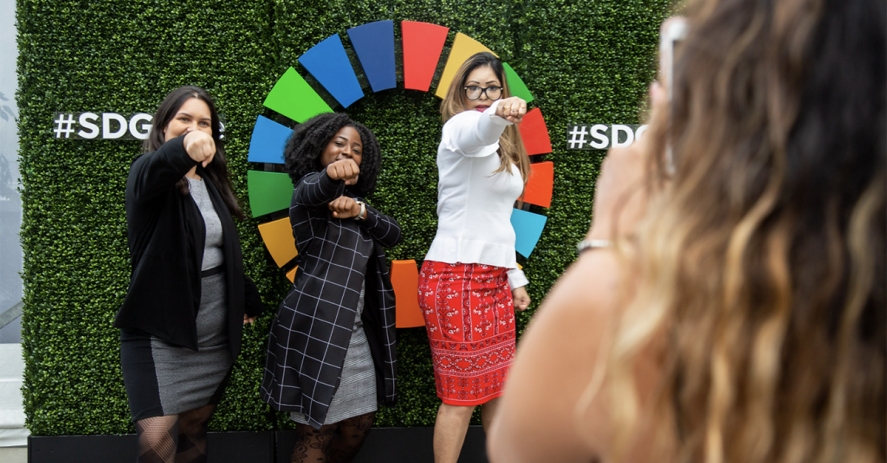
Strong institutions to help us build back better
Transforming institutions and governance is key in global efforts to achieve peace and the 17 Sustainable Development Goals (SDGs). This is why public administration experts will gather for their annual meeting on 4-8 April 2022 with this theme in focus.
During its 21st session, the Committee of Experts on Public Administration (CEPA) will discuss governance and public service aspects of the theme of the 2022 Economic and Social Council (ECOSOC) and the 2022 High-level Political Forum (HLPF) on sustainable development, “Building back better from COVID-19 while advancing the full implementation of the 2030 Agenda for Sustainable Development.”
Other topics that will be discussed include building strong institutions to combat climate change and its impacts and for the sustainable management, protection, and restoration of natural resources; governance and institution-building in conflict-affected countries; public financial management and budgeting for the Sustainable Development Goals (SDGs); public sector workforce; and digital government. The application of the principles of effective governance for sustainable development at the subnational level will also be discussed.
The session will also feature a dialogue with voluntary national review countries on institutional aspects of SDG 16: Peace, Justice, and Strong Institutions. Additionally, there will be a dedicated observer consultation which will allow for an in-depth exchange with different observers, including youth organizations.

Age with rights – over 200 civil society organizations call for action
This year, as the Madrid International Plan of Action on Ageing approaches its 20-year milestone, there is an opportunity to generate renewed momentum for action to ensure that persons everywhere are able to age with security and dignity and to continue to participate in their societies as citizens with full rights.
The UN Secretary-General noted that the COVID-19 pandemic should be viewed as a stress test measuring how prepared Member States are for an ageing society. The consequences of the pandemic and responses to it have shown that existing normative frameworks at the international and national level have serious flaws and that the effective protection of the human rights of older persons is still a long way off.
This underlines the urgency of improving the international human rights framework. The Secretary-General has called upon the General Assembly open-ended working group on ageing to accelerate efforts to develop proposals for an international legal instrument to promote and protect the rights and dignity of older persons.
Many older persons around the world agree. In the run-up to the twelfth session of the working group, over 200 organizations signed an open letter calling for clear action on older persons’ rights.
The twelfth session will be held from 11 to 14 April in New York and will address two new themes: the contribution of older persons to sustainable development as well as economic security.

Recovering from COVID-19, youth step up efforts for the global goals
Youth leaders, activists and youth-led organizations around the world will gather virtually with government ministers and officials at the United Nations Economic and Social Council (ECOSOC) this month to present bold solutions and initiatives for steering recovery from the pandemic and setting the world back on track to achieve the Sustainable Development Goals (SDGs) by 2030.
The Youth Forum will address the theme of ECOSOC and the 2022 UN High-level Political Forum on sustainable development (HLPF) on “Building back better from COVID-19 while advancing the full implementation of the 2030 Agenda for Sustainable Development.” It will also review progress in the areas of quality education (SDG4), gender equality (SDG5), life below water (SDG14), life on land (SDG15) and partnerships for the goals (SDG17).
ECOSOC President Collen Vixen Kelapile “looks forward to hearing from the global youth on how we can advance together the Youth Agenda and implementation of the 17 Sustainable Development Goals as we mount an effective response and recovery from the COVID-19 pandemic”.
As one of the main annual platforms at the UN for youth to share their ideas at the global level, Jayathma Wickramanyake, the UN Secretary-General’s Envoy on Youth, believes “this year’s virtual ECOSOC Youth Forum will again provide exciting new ways for young people, as well as youth-led and youth-focused organizations and networks, to showcase and amplify their advocacy and commitment to accelerate the implementation of the SDGs while responding to the multiple global crises facing our rapidly changing world.”
The Youth Forum is hosted by the Economic and Social Council (ECOSOC) and co-organized by the UN Department of Economic and Social Affairs (UN DESA) and the Office of the Secretary-General’s Envoy on Youth (OSGEY), in collaboration with the Major Group for Children and Youth (MGCY), the International Coordination Meeting of Youth Organizations (ICMYO) and United Nations Inter-Agency Network on Youth Development (IANYD).
The Youth Forum has become a dynamic space for young people to share their innovative ideas and scale up efforts for youth development and engagement in addressing pressing global challenges.

New population trends: a force for good
As the population of the world approaches 8 billion, the growth rate continues to slow. Once fertility begins to fall, the changing age distribution becomes a positive force for economic growth, if labour markets successfully absorb the rapidly growing number of people in the working age ranges. During this stage of the demographic transition, population dynamics create the conditions for accelerated increase in income and consumption per capita, often referred to as the first demographic dividend.
The first demographic dividend gives way to a second demographic dividend as populations shift towards older ages. Population ageing can lead to increased capital intensity in the economy. This may in turn be enhanced further if individuals who anticipate longer lives, and therefore more time in retirement, respond by increasing their asset accumulation accordingly.
A decline in fertility also facilitates increasing investments in human capital. Women may encounter better economic opportunities as they redirect more of their time to education and paid work. Smaller families often invest more per child in health and education and these investments also contribute to achieving sustained and inclusive economic growth.
But higher standards of living often comes at the risks of environmental damage caused by economic processes. Population growth adds to such pressure by increasing the total economic demand. Climate change is likely to amplify existing risks and to create new risks for human health, food security and other societal conditions.
To achieve sustainable patterns of consumption and production, it is important to recognize that plausible future trajectories of the world population lie within a relatively narrow range, especially in the short or medium term. Efforts to limit climate change will therefore depend largely on the scope and effectiveness of measures to decouple economic activities from carbon dioxide emissions.
From 25 to 29 April 2022, the Commission on Population and Development will debate the progress, gaps, challenges and evolving issues in implementing the Programme of Action of the International Conference on Population and Development (ICPD) with a particular focus on Chapter III (Interrelationships Between Population, Sustained Economic Growth, and Sustainable Development). The session will also discuss the 2030 Agenda. The annual theme of the Commission will be “Population and sustainable development, in particular sustained and inclusive economic growth”.
 Celebrity Media TV
Celebrity Media TV









